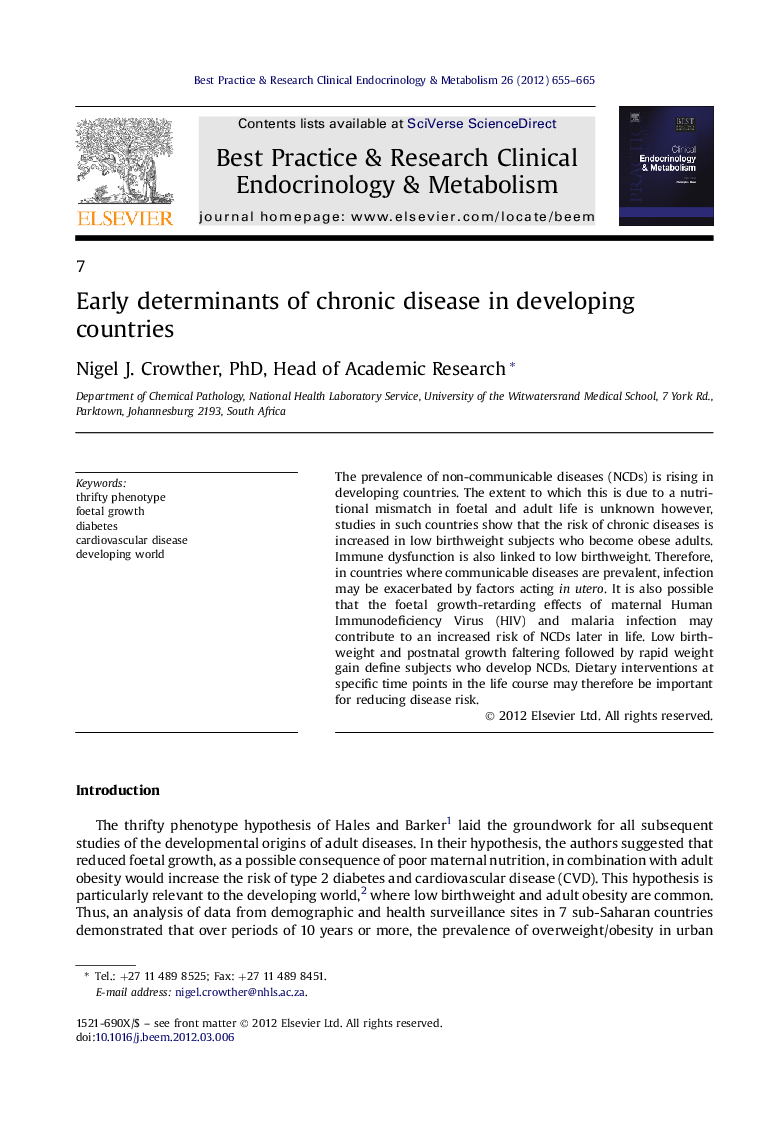| Article ID | Journal | Published Year | Pages | File Type |
|---|---|---|---|---|
| 2791856 | Best Practice & Research Clinical Endocrinology & Metabolism | 2012 | 11 Pages |
The prevalence of non-communicable diseases (NCDs) is rising in developing countries. The extent to which this is due to a nutritional mismatch in foetal and adult life is unknown however, studies in such countries show that the risk of chronic diseases is increased in low birthweight subjects who become obese adults. Immune dysfunction is also linked to low birthweight. Therefore, in countries where communicable diseases are prevalent, infection may be exacerbated by factors acting in utero. It is also possible that the foetal growth-retarding effects of maternal Human Immunodeficiency Virus (HIV) and malaria infection may contribute to an increased risk of NCDs later in life. Low birthweight and postnatal growth faltering followed by rapid weight gain define subjects who develop NCDs. Dietary interventions at specific time points in the life course may therefore be important for reducing disease risk.
